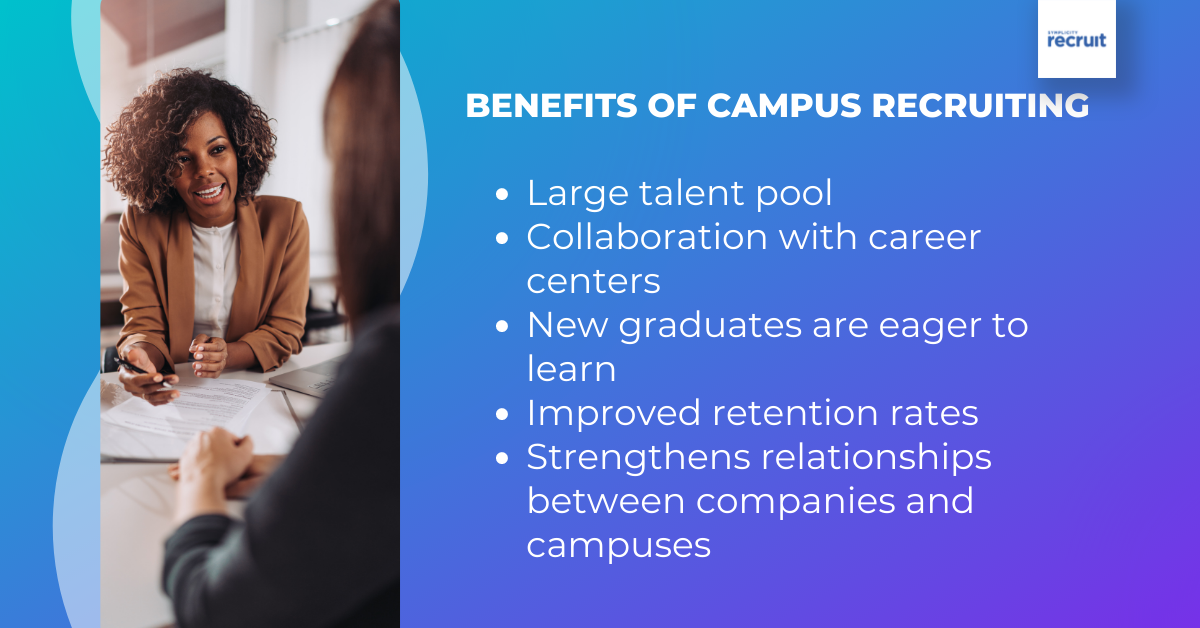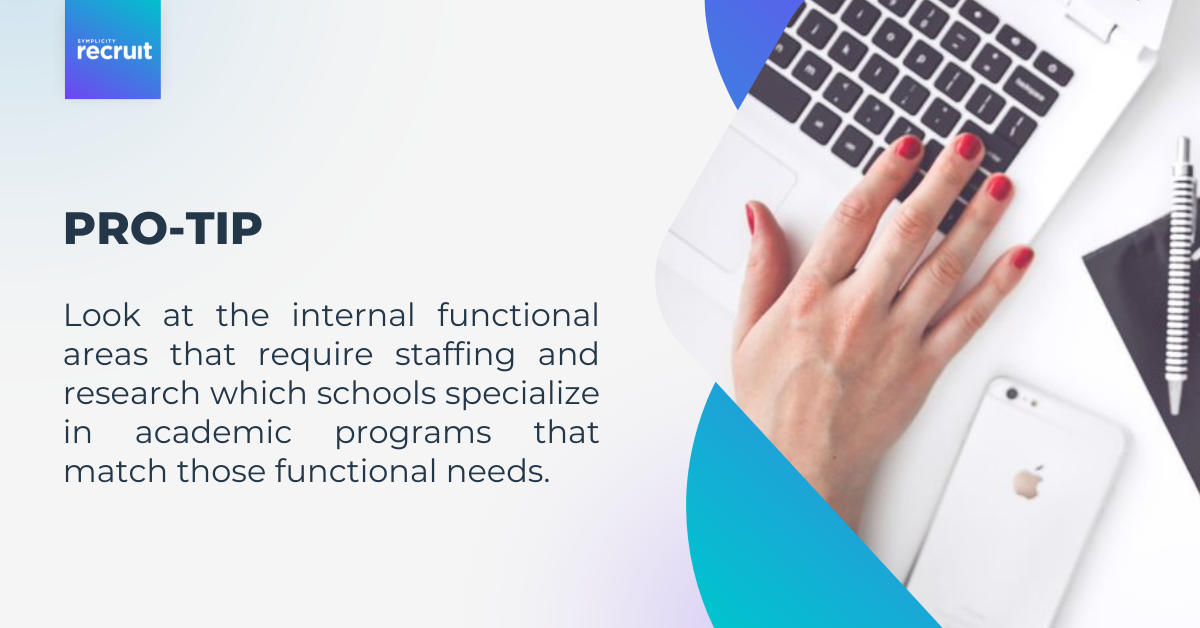When you’re on the hunt for early talent, it helps to have a recruitment strategy. So how do you do it? There’s definitely a lot to consider when developing and implementing a campus recruitment strategy.
- Which programs and degrees should you hire from? (BAs, MBAs, JDs, etc).
- Which schools should you target?
- What is the best way to ensure you generate enough interest in available opportunities?
Here’s everything you need to know about building a strong campus recruitment strategy.
What Is a Campus Recruitment Strategy?
Campus recruiting is the process of hiring students and recent graduates directly from colleges and universities. It enables organizations to scoop up the best and brightest students straight from campus–a surefire way to build entry-level talent pipelines.
Organizations typically focus on attracting students for internships, co-op and summer jobs, or new graduates for full-time entry-level positions. Depending on an organization’s industry niche or area of expertise, recruiters can find specific schools to target that are known for their academic excellence in these areas.
Benefits of Campus Recruiting

Regardless of whether your company is looking to hire students or recent graduates, there are significant benefits associated with campus recruiting.
Large Talent Pool
Campus recruiting allows organizations to tap into a large pool of diverse and highly educated candidates for current hiring needs and to create pipelines for future opportunities.
Collaboration with Career Centers
Campus career centers often help coordinate the entire recruitment process, including scheduling on-campus interviews with students.
New Graduates Are Eager to Learn
New grads are likely to dive into a new role. They're eager to learn and contribute with positive energy and fresh knowledge.
Improved Retention Rates
Hiring early talent helps companies hire employees that are already willing and ready to commit to their new roles. This is especially true for companies that offer training opportunities for career advancement and growth.
Strengthens Relationships Between Companies and Campuses
A strong relationship with campus Career Centers not only builds a good rapport, but it increases the opportunities new graduates get while also exposing companies and organizations to large talent pools. Moreover, the stronger the relationship between the company and the university, the more likely new graduates are to recommend the company to their juniors.
For an organization to ensure it reaps these benefits, its recruiters need to create and implement a strong campus recruiting strategy by following the five steps outlined below.
5 Campus Recruitment Strategy Steps
- Identify Hiring Needs and Target Schools
The first step in creating a campus recruiting strategy is to identify internal company hiring needs, as well as which campuses to target for these hires. Knowing the type and level of knowledge required will enable recruiters to select the right programs to source from.
- Establish Career Center Relationships
Once you know which schools to target, reach out to campus career centers at each school. It’s important to establish a relationship with the career centers on campus, as each program has specific guidelines, events, and timelines associated with its recruiting process. Remember, career centers can alleviate some of the stresses associated with job posting deadlines and facilitate networking with prospective hires. - Organize Calendars and Resources
Connecting with career centers will make you aware of timelines on campus. Use these to implement the same schedule internally and begin planning the campus recruiting cycle. The key to having a successful recruiting season is to pay close attention to detail and coordination, especially when you’re planning on recruiting from multiple schools. Before planning for anything, confirm which campus events you want to participate in and whether your company has the required resources and budget.
Some examples of events you should attend include: career fairs, company information sessions, case competitions, and interview days. As for resources you’ll need, these will include company representatives, branding materials, and giveaways. - Attract Students On-Campus
With Gen Z, the best way to get their attention on campus is to have a strong employer brand presence. One way to do this is by partnering with your company’s marketing team. A company’s marketing team can create organizational presentations to specifically appeal to the campus audience. It’s important that you, as the recruiter, also assist the marketing team by sharing your knowledge of what each of the diverse student groups on campus value in an employer and what Gen Z wants in a career.
Creating appealing and impactful job postings through online campus recruitment tools, such as Recruit also helps organizations promote their unique company brand across multiple schools. - Make the Offer and Onboard
Once you find the best candidate for the role, it’s time to make an offer and begin the onboarding process. Make sure to have a clear understanding of benchmark compensation for entry-level hires, as well as other benefits and perks student and recent graduate hires are looking for.
PRO-TIP
Don’t hesitate to reach out to the school’s career center for information on graduates. They’re a valuable resource for this, as they often compile and publish student compensation data for various academic programs and industries.


